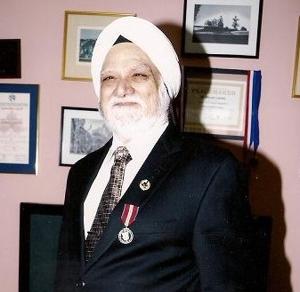Shortly after the storming of the Bastille prison in Paris on July 14, 1789, the English political theorist Edmund Burke wrote a letter to Lord Charlemont, the first president of the Royal Irish Academy. It is Burke's earliest known statement about the French Revolution:
The spirit it is impossible not to admire; but the old Parisian ferocity has broken out in a shocking manner...if it should be character, rather than accident, then that people are not fit for liberty, and must have a strong hand, like that of their former masters to coerce them. Men must have a certain fund of natural moderation to qualify them for freedom, else it becomes noxious to themselves, and a perfect nuisance to every body else.
We know the rest of the story. The French revolutionaries proved themselves to be unfit for liberty. Barely a decade after executing their hated monarch—and after years of political instability, social chaos, and the remorseless violence of the guillotine—the freedom-loving revolutionaries installed an emperor to replace him. Napoleon Bonaparte, dictator for life, would become a perfect nuisance to the rest of Europe.
Burke's fullest assessment of events in France, his 1790 letter Reflections on the Revolution in France, written while the revolution was still unfolding, reveals a mind quickened by its moral insight into human nature and the nature of free societies. In his Reflections, Burke warned of political revolutions that despise everything that came before them: "People will not look forward to posterity, who never look backward to their ancestors."
The impulse to damn with indifference the wisdom of an earlier generation is no longer confined to the French avant-garde or the cultural left. It is taking root in ultra-conservative circles in the United States, where a revolt against the core tenets of liberal democracy is underway. A small but growing cadre of Christian conservatives—mostly Catholic—has decried the American experiment in self-government as a fool's errand: a quest for the fully emancipated self, unconstrained by the ties of custom, tradition, family, or faith. Classical liberalism, argues Patrick Deneen, Notre Dame political scientist and author of Why Liberalism Failed, was based upon a "fundamental commitment to the liberation of the individual...from nature's limitations." Its malicious strategy, he claims, is to enlist an omnicompetent state to enable "the greatest possible pursuit and satisfaction of the appetites."
This conservative—and, at times, conspiratorial—critique of liberal democracy is sustained by a grievous conceptual mistake. It is the failure to grasp the profound differences between the two great revolutions for freedom in the 18th century—between the events of 1776 and those of 1789. Not unlike the radical left, a vocal wing of the religious right seems contemptuous of the achievements of the Anglo-American political tradition.



Write a comment ...